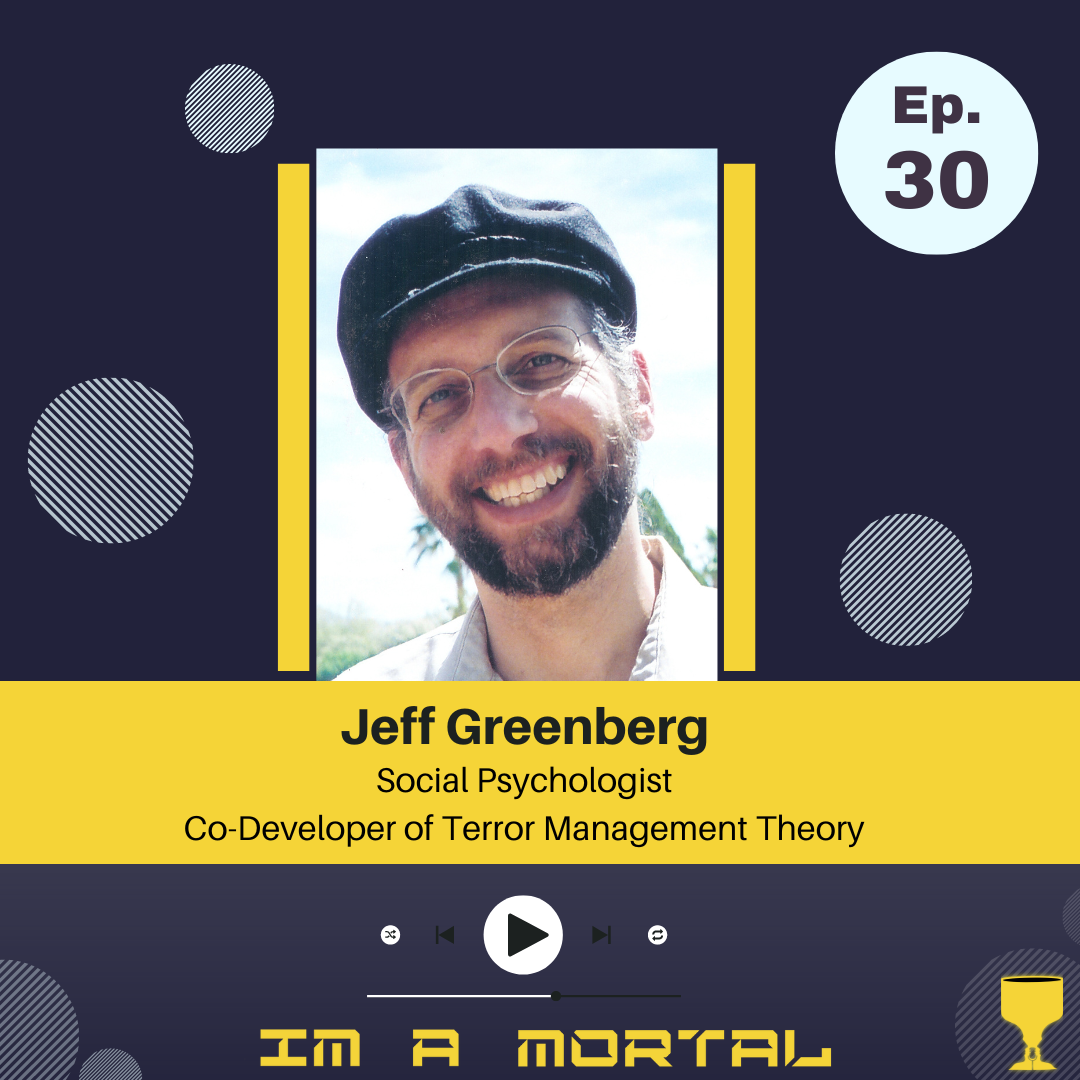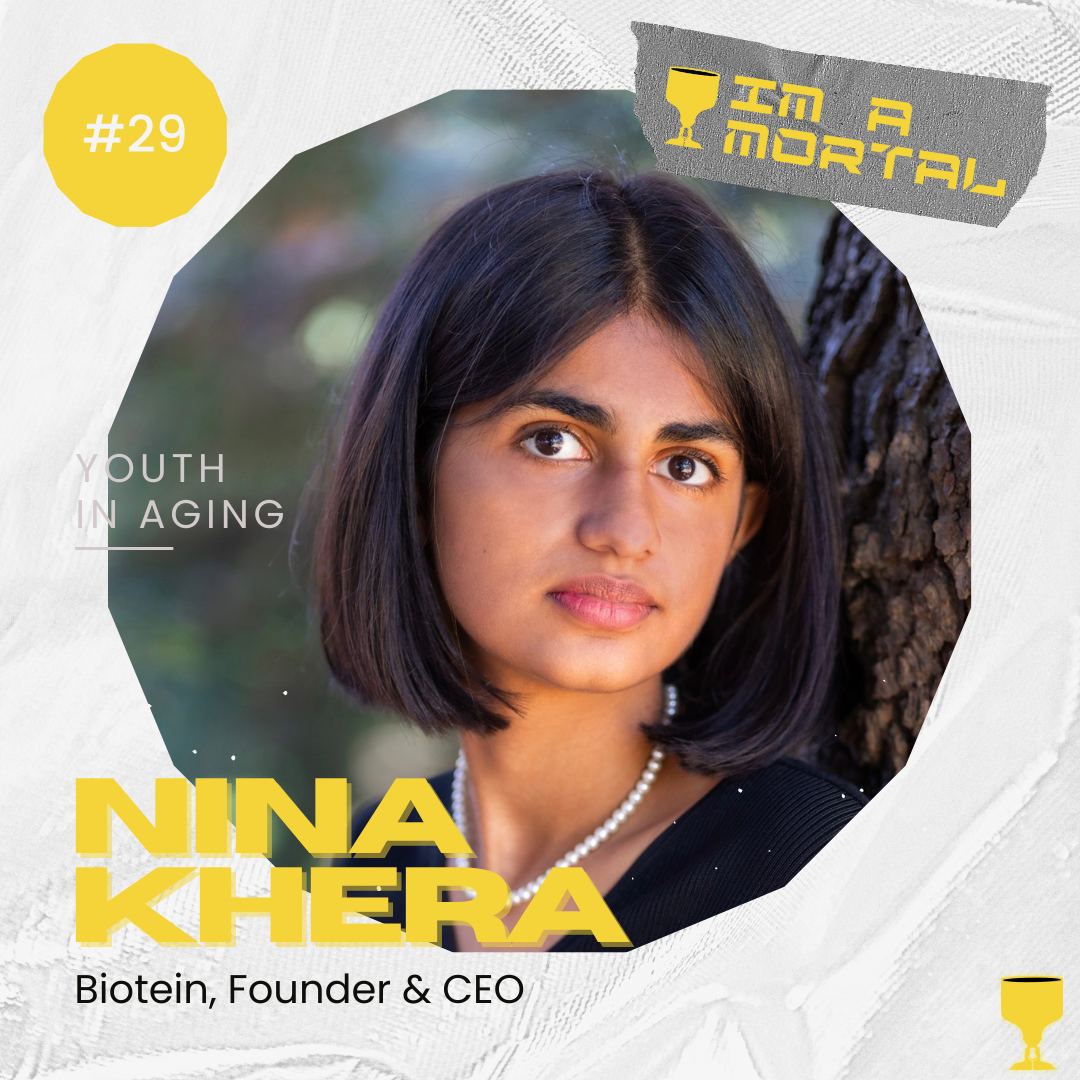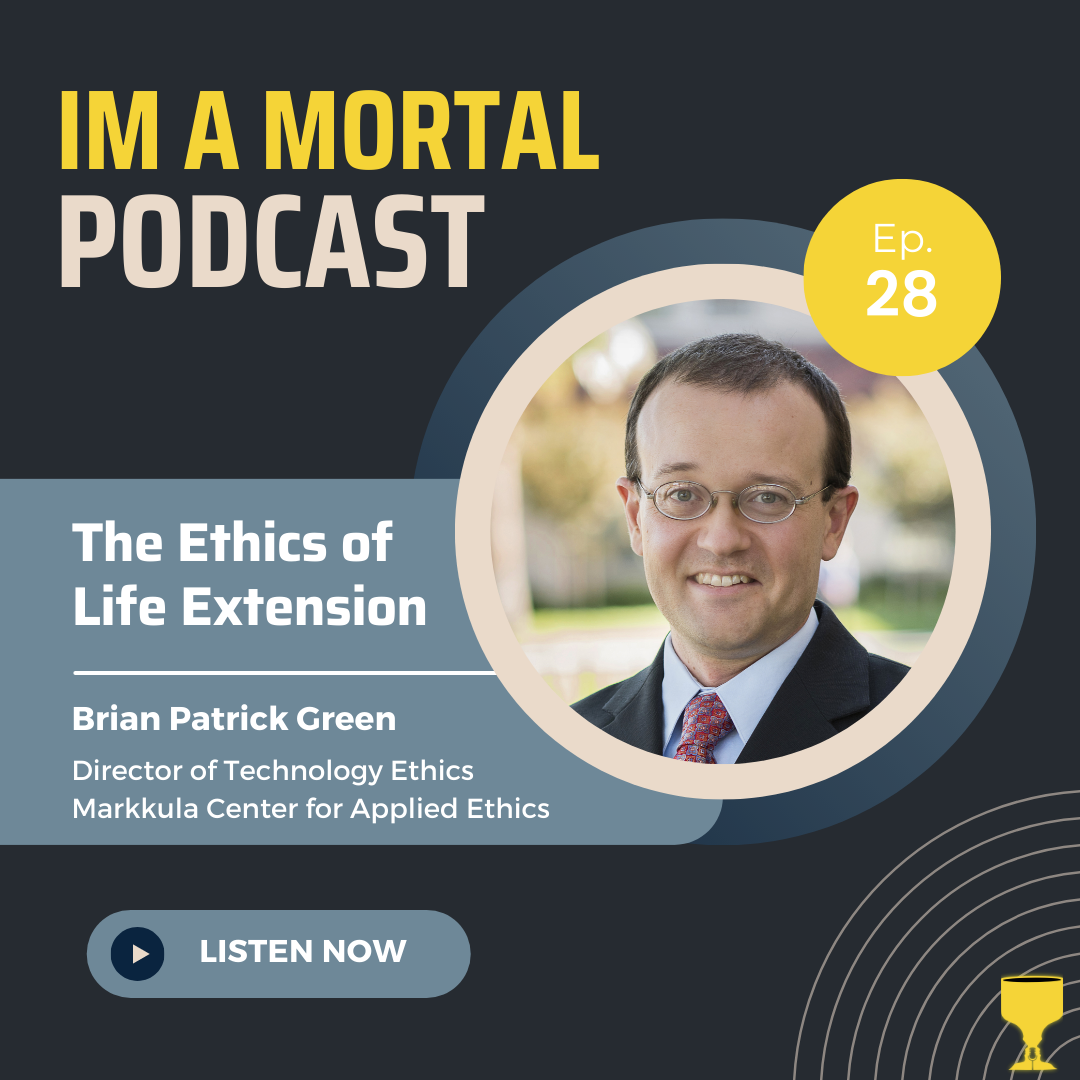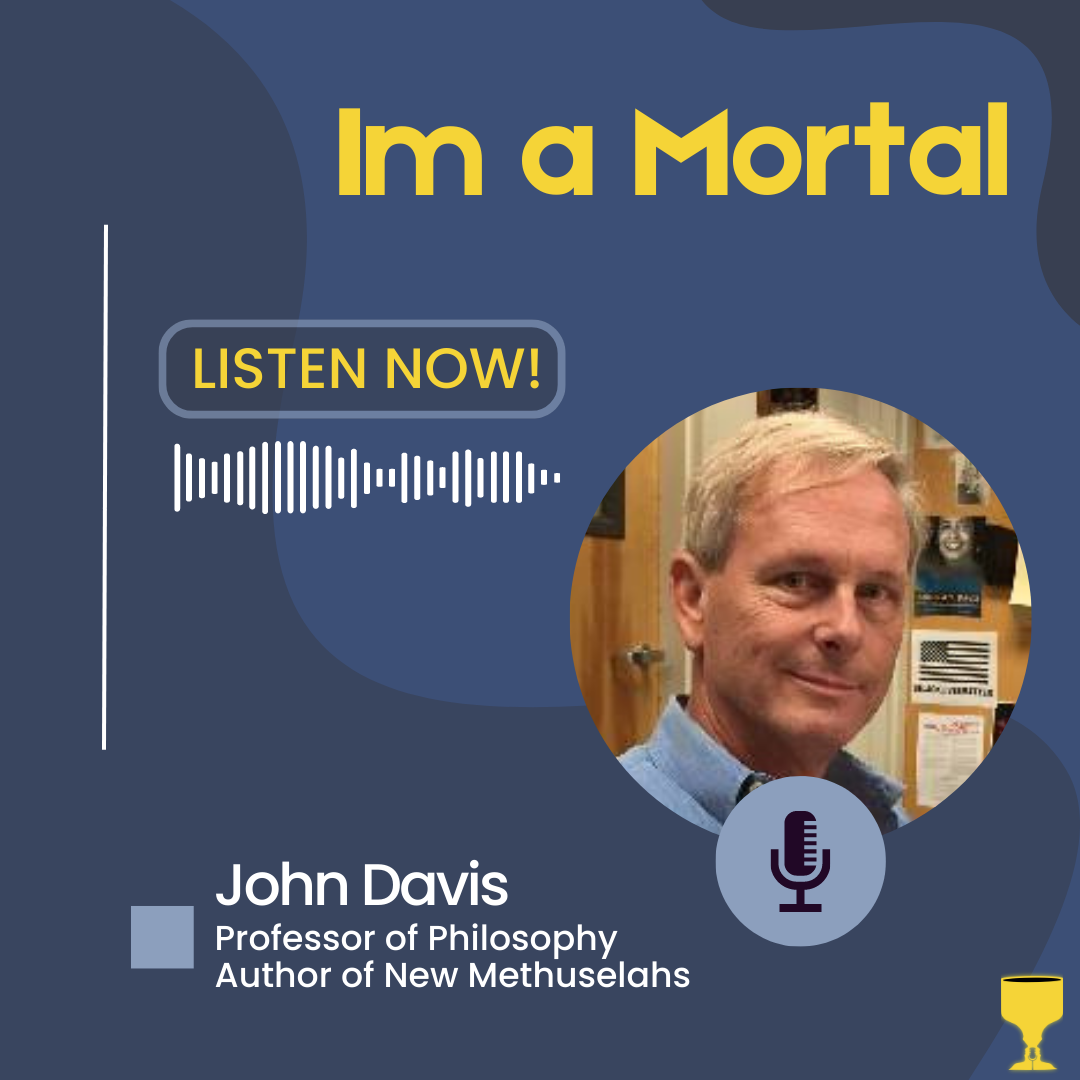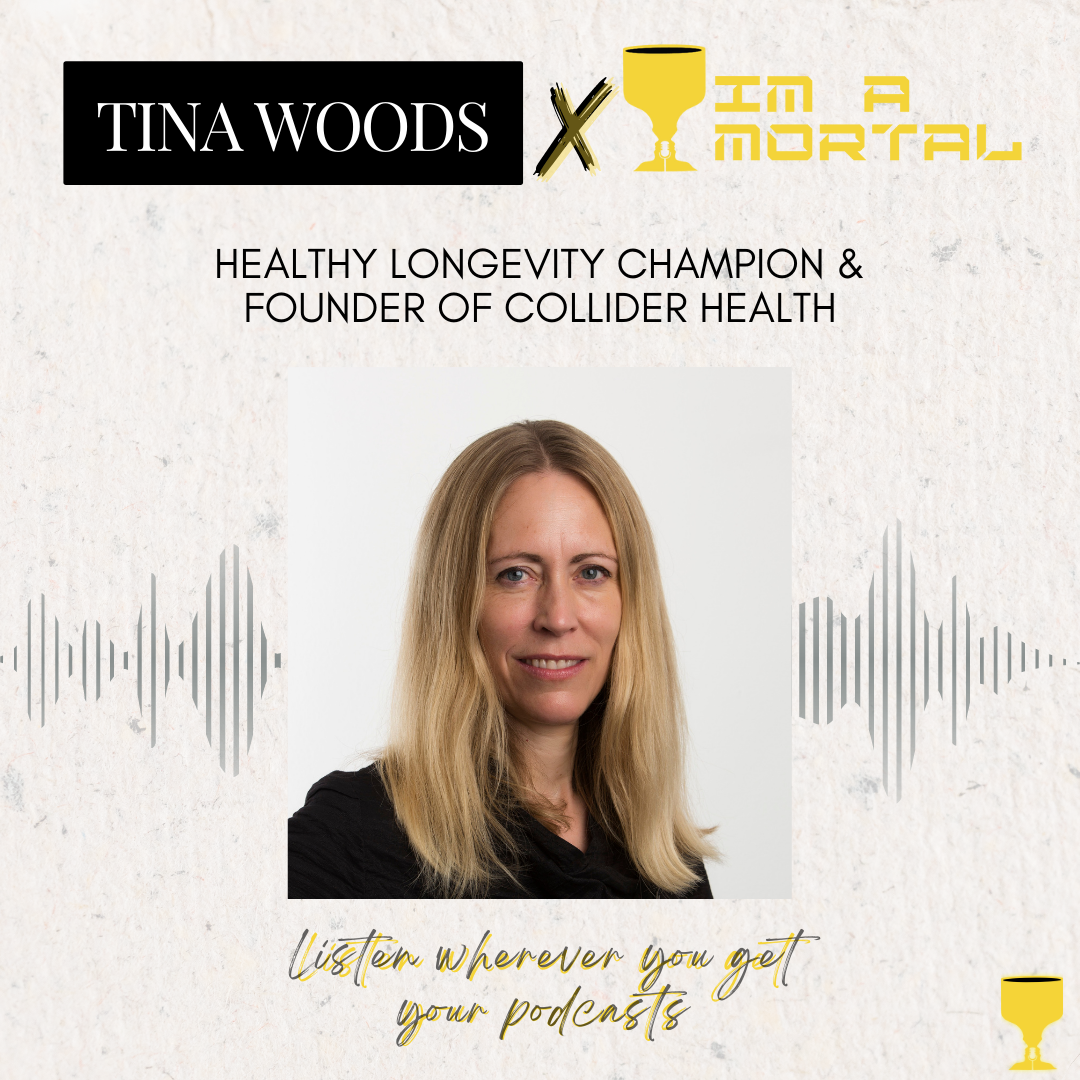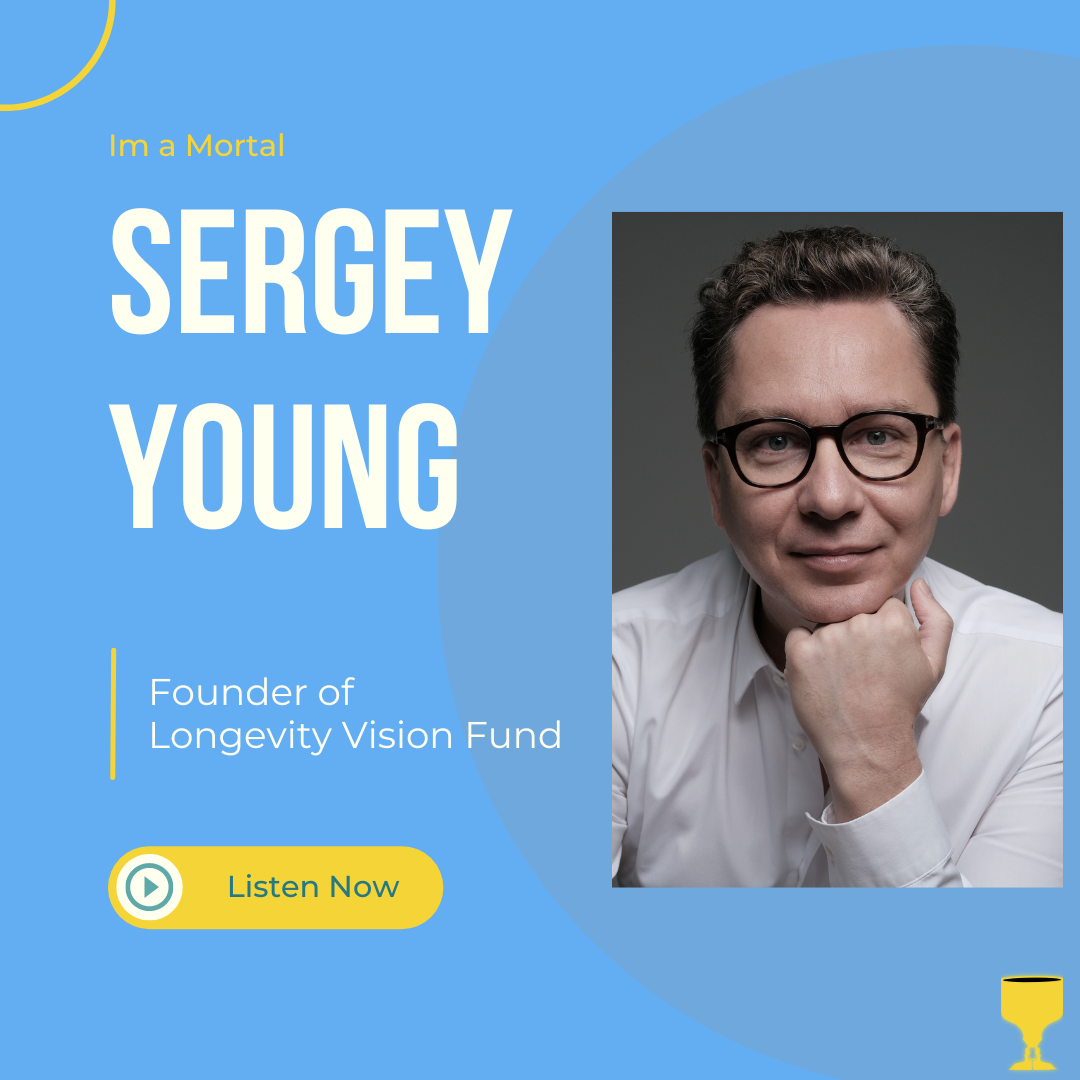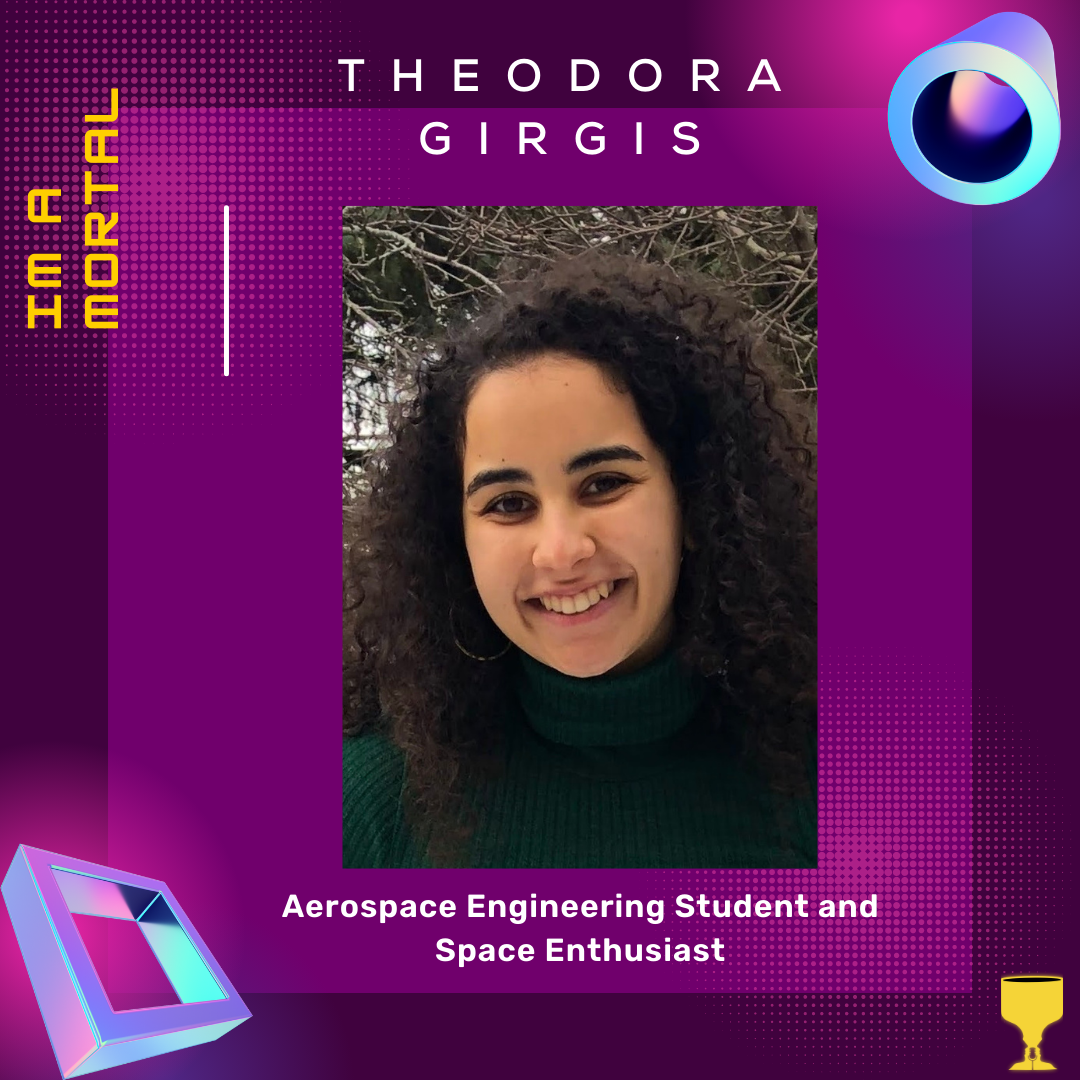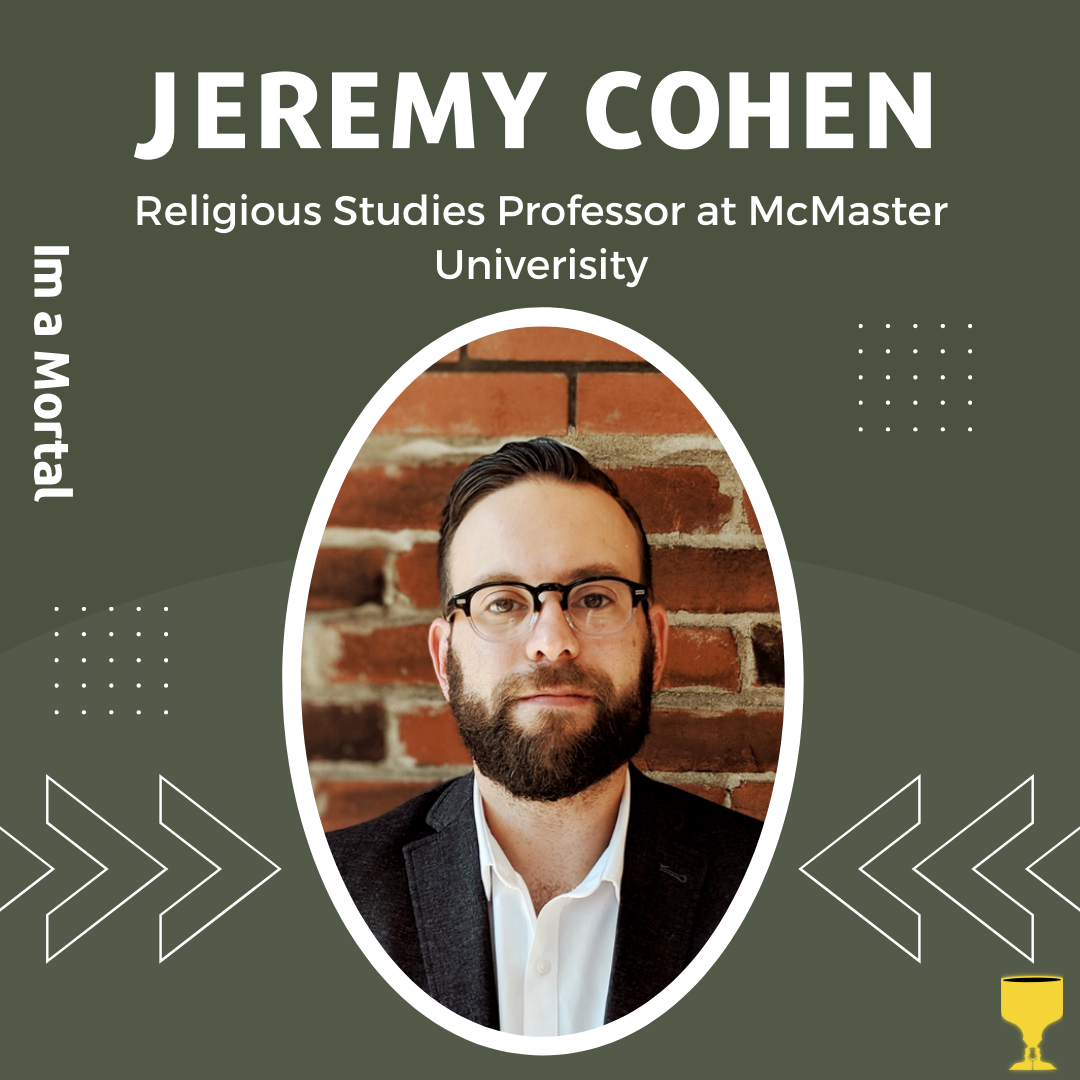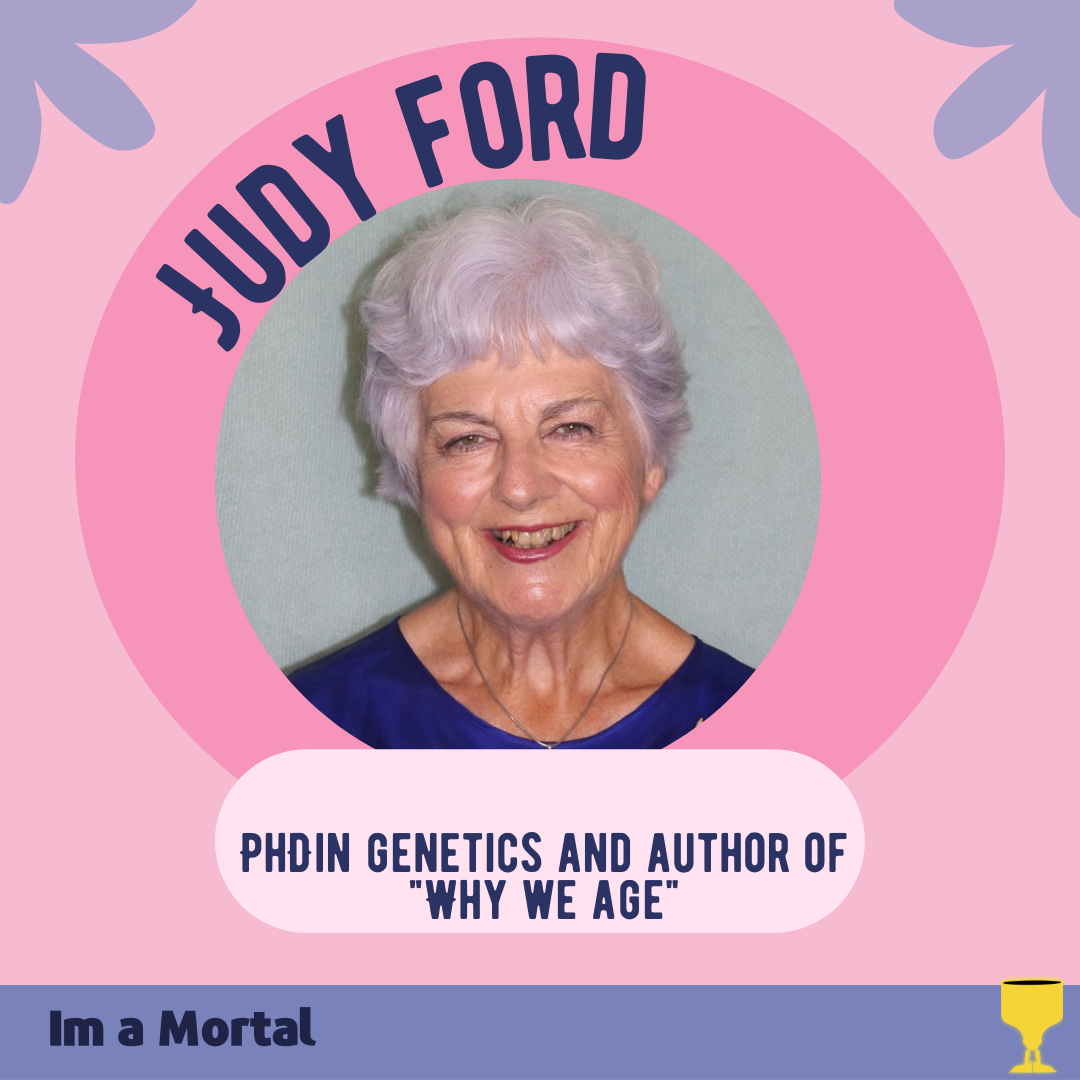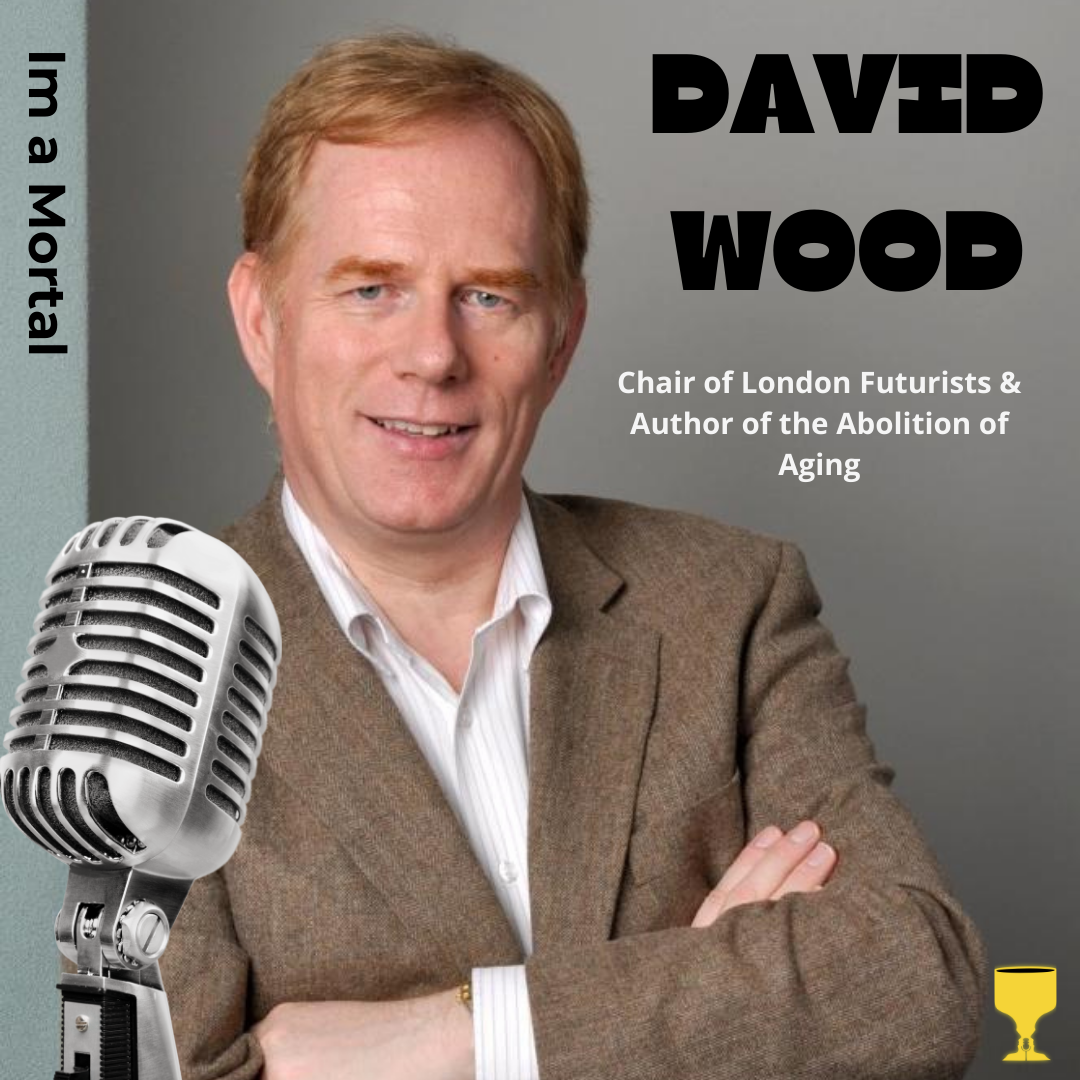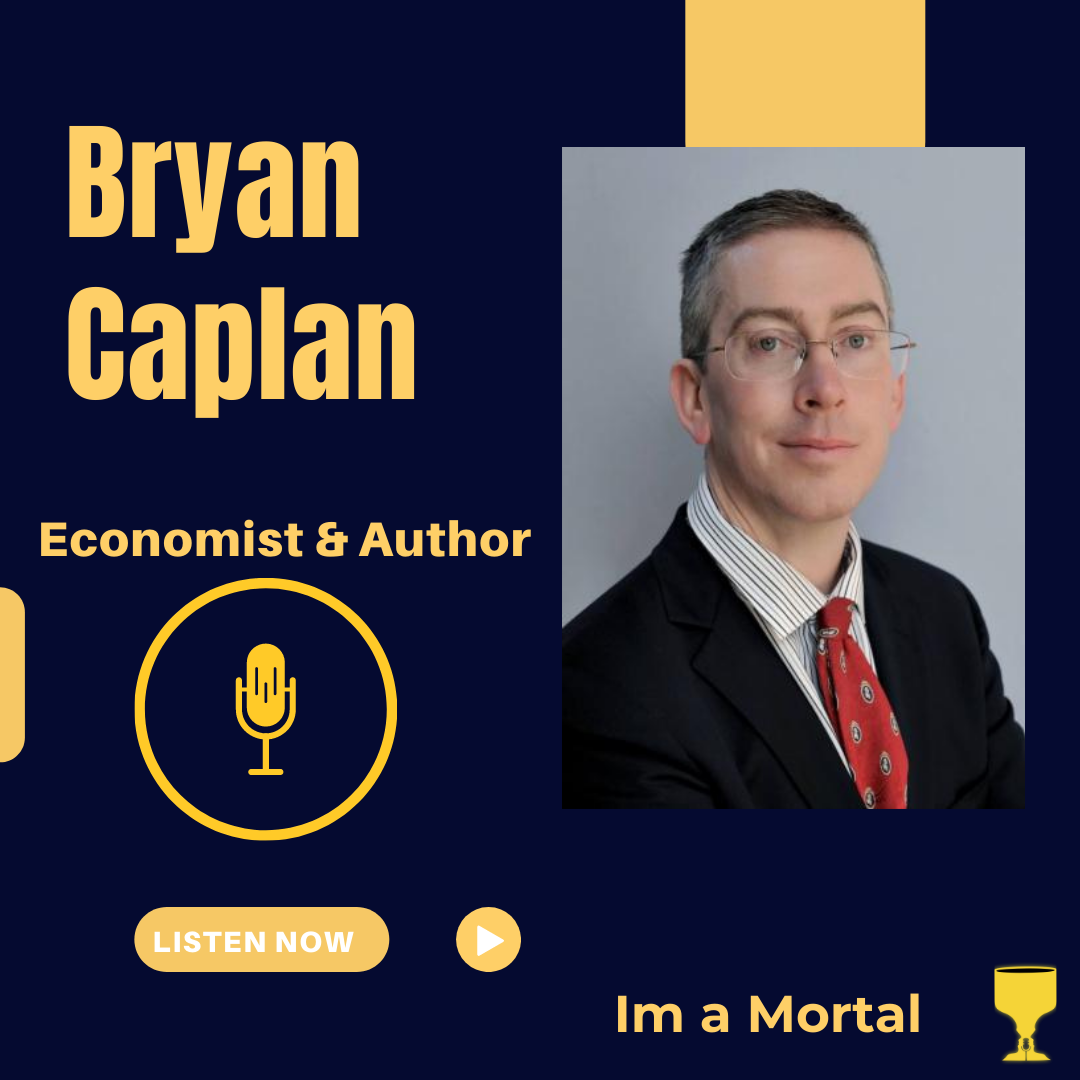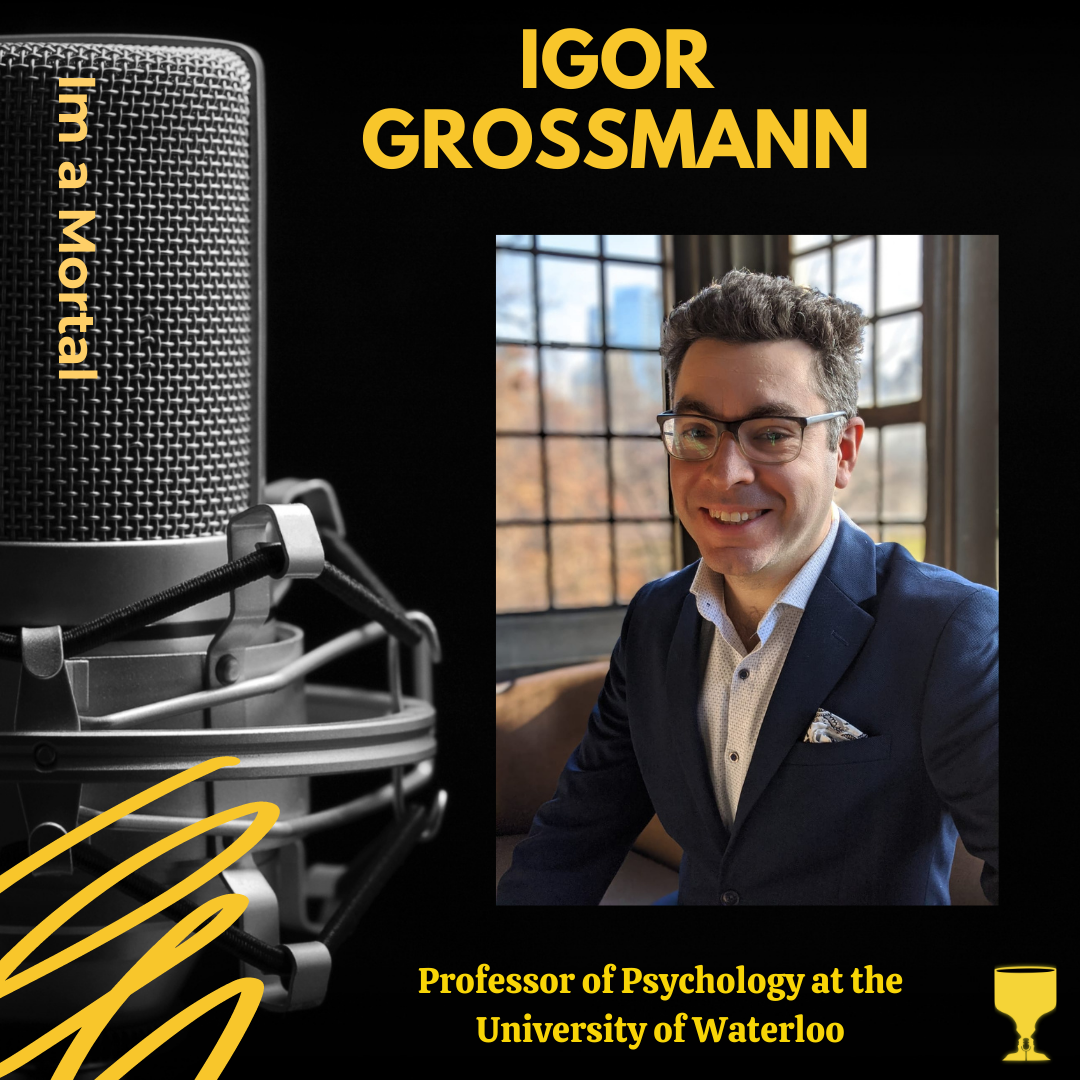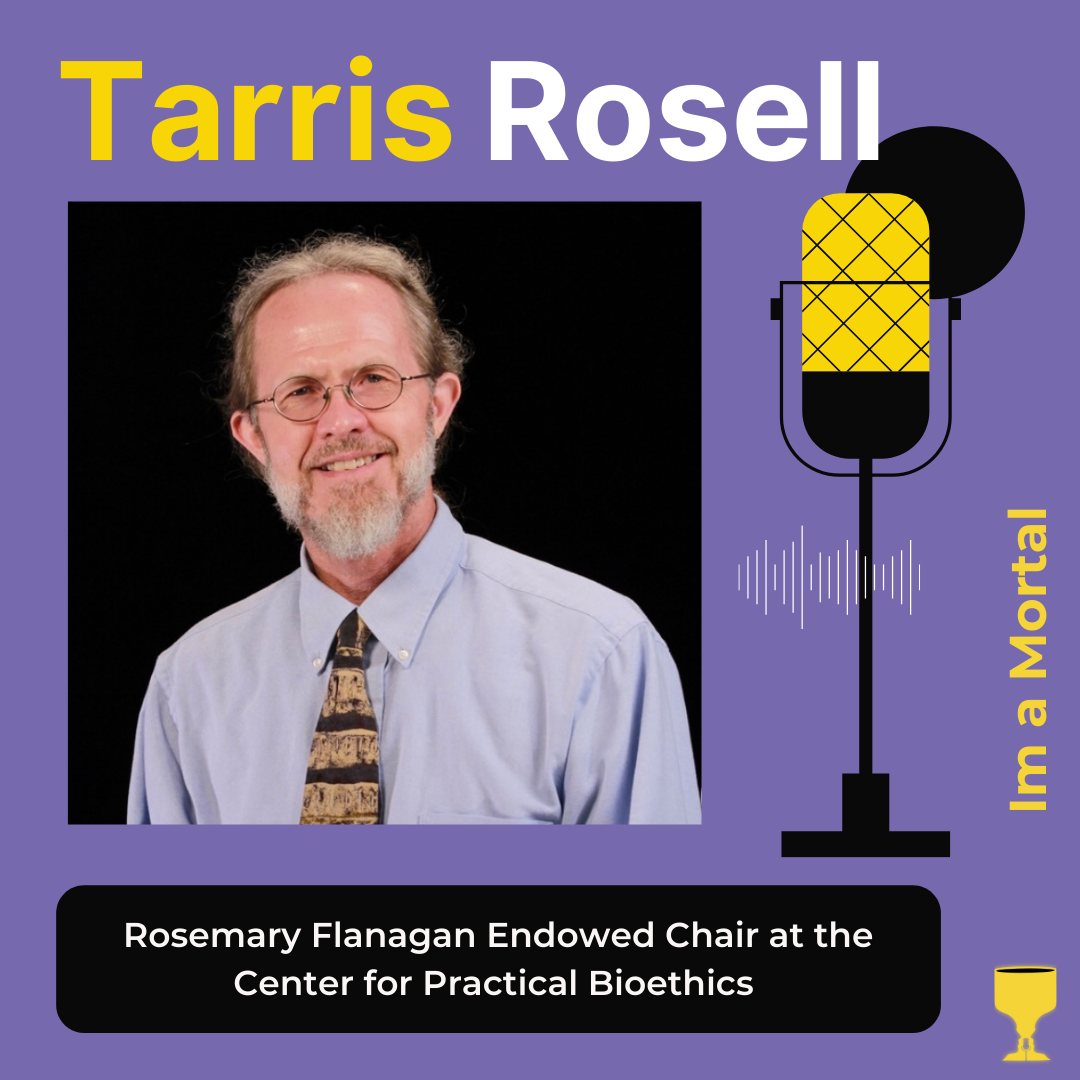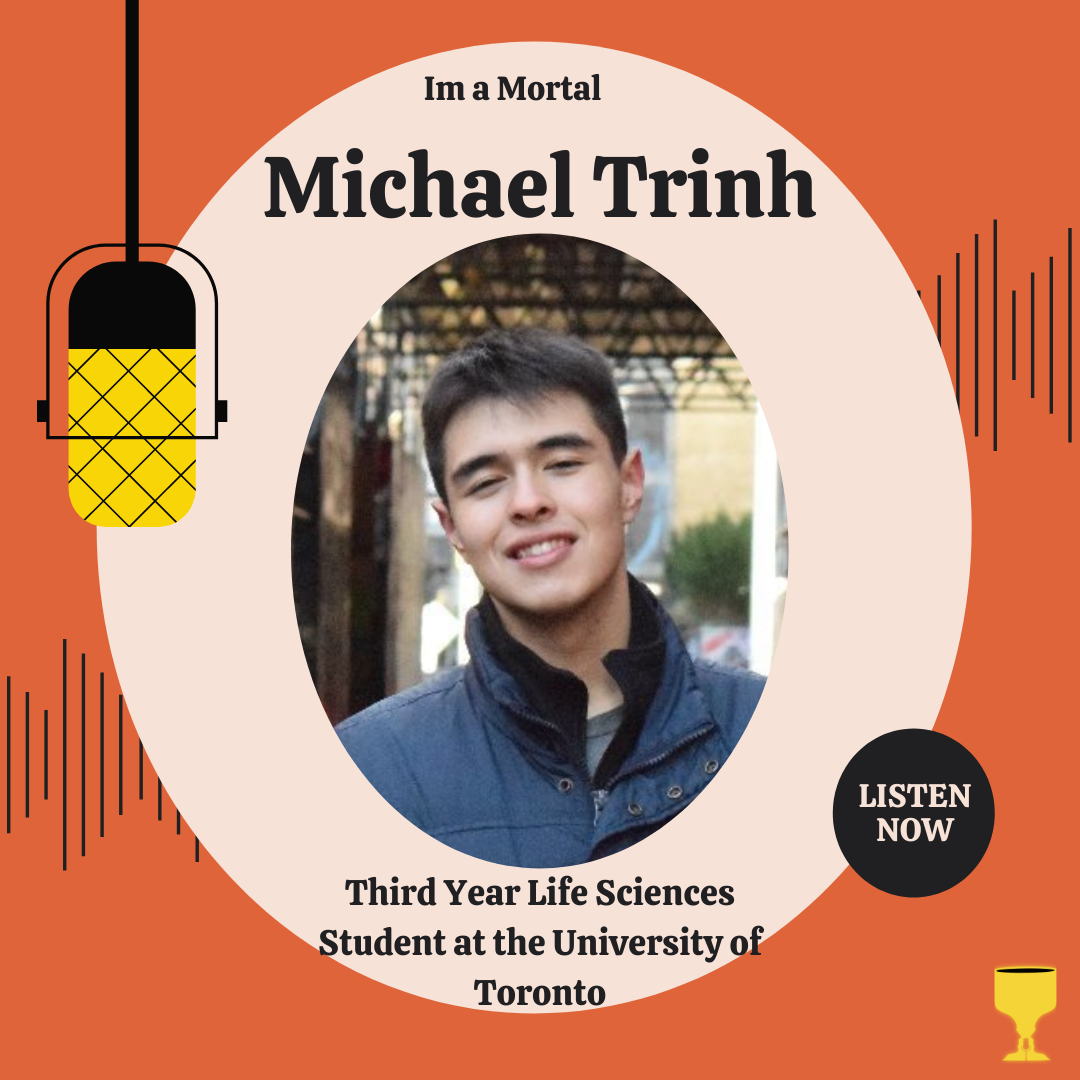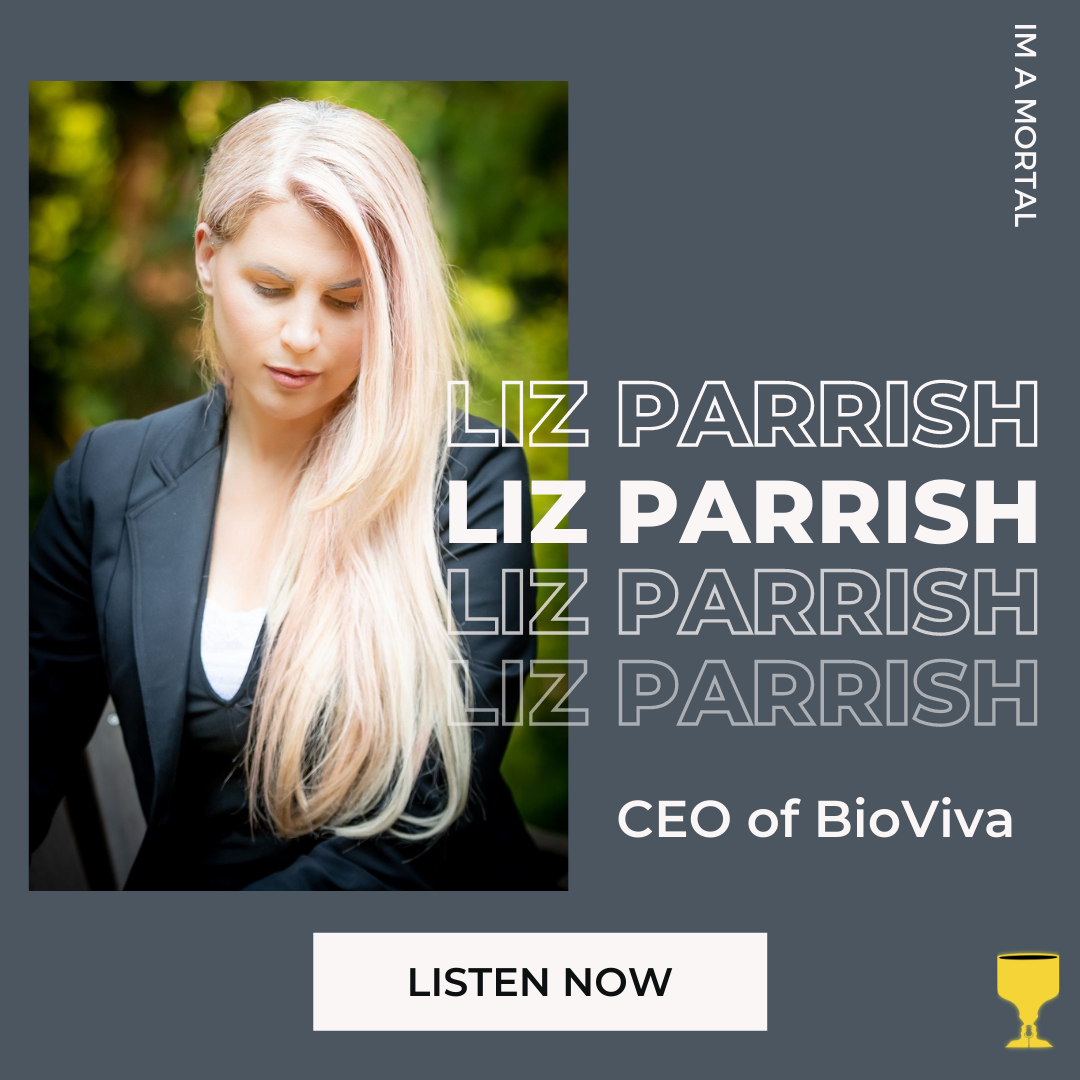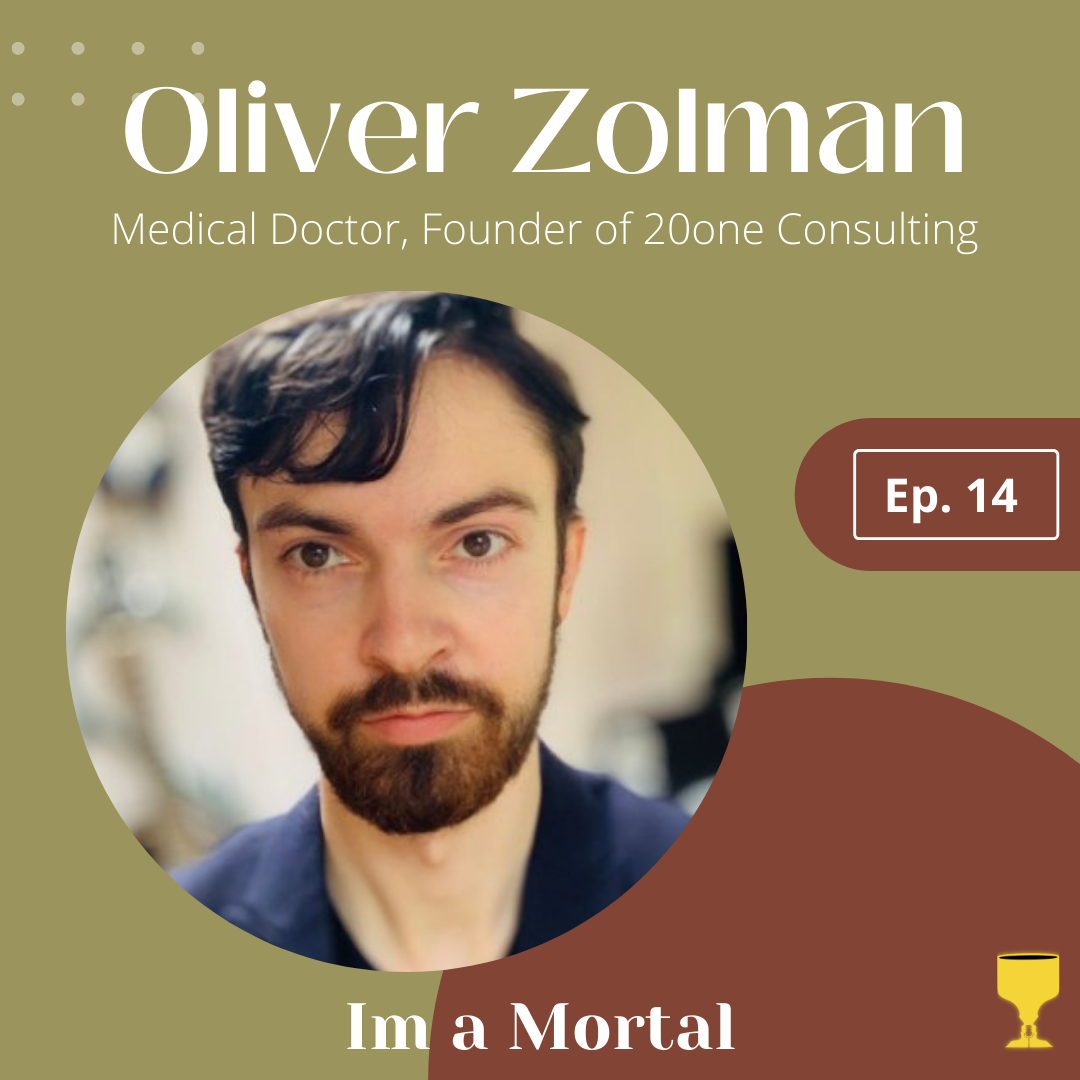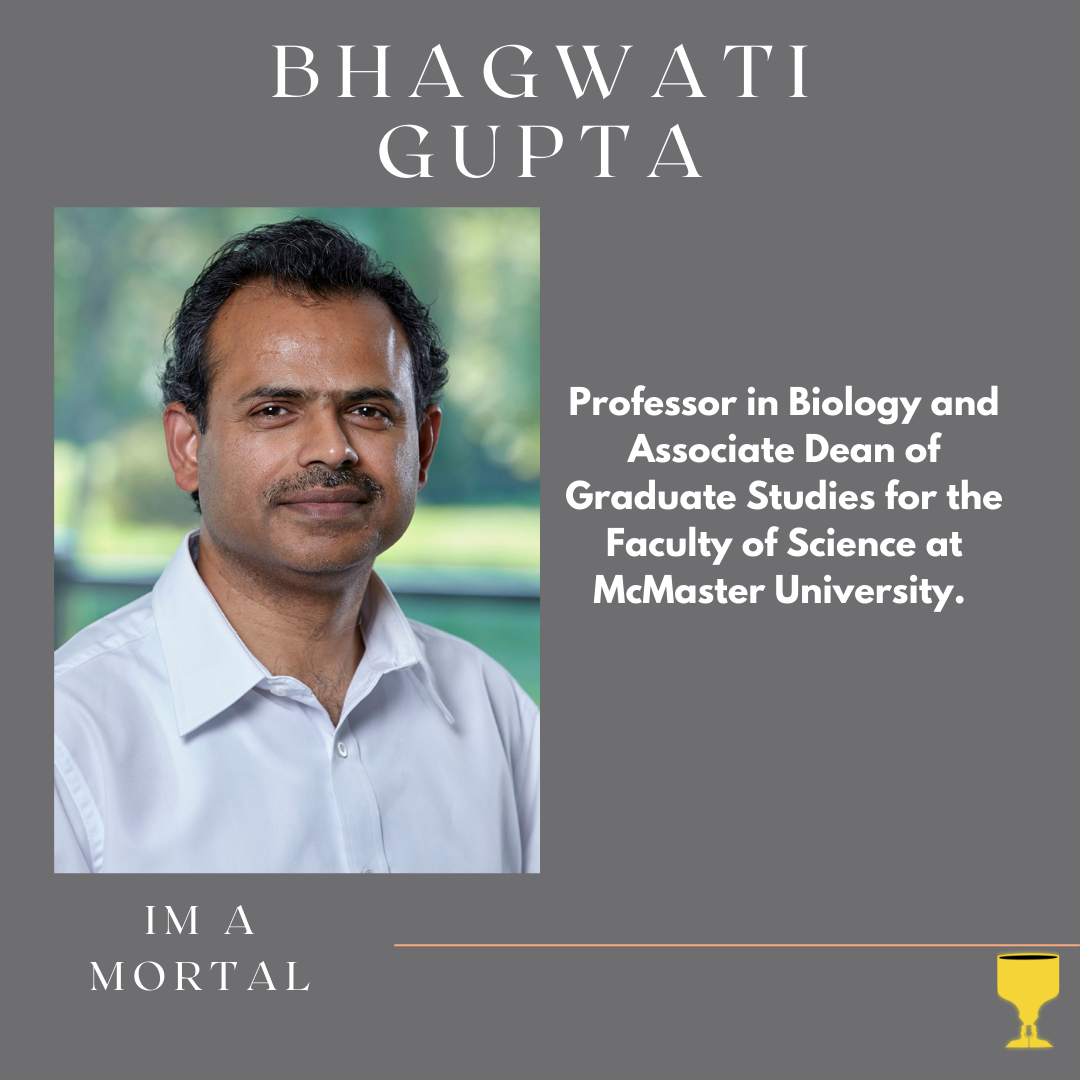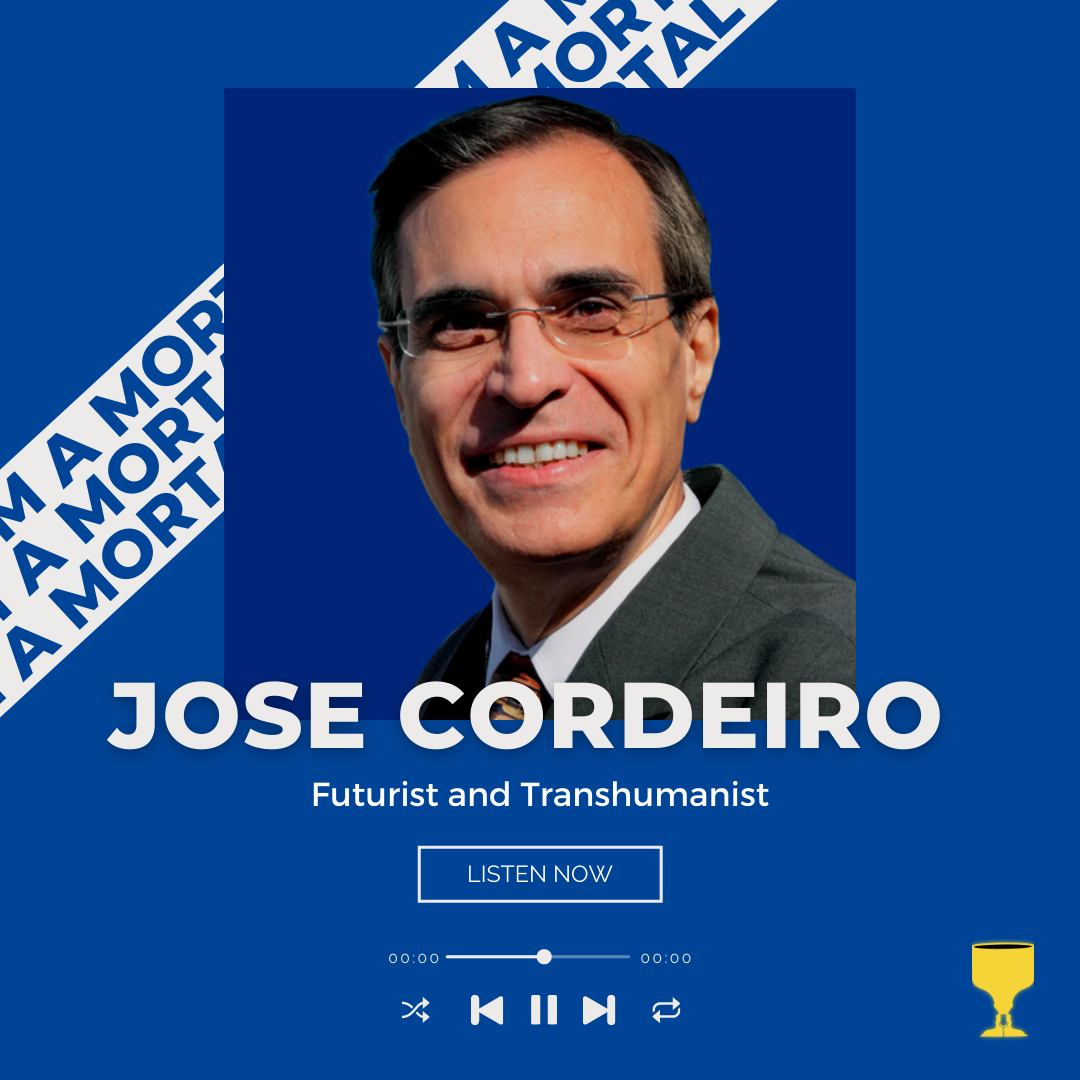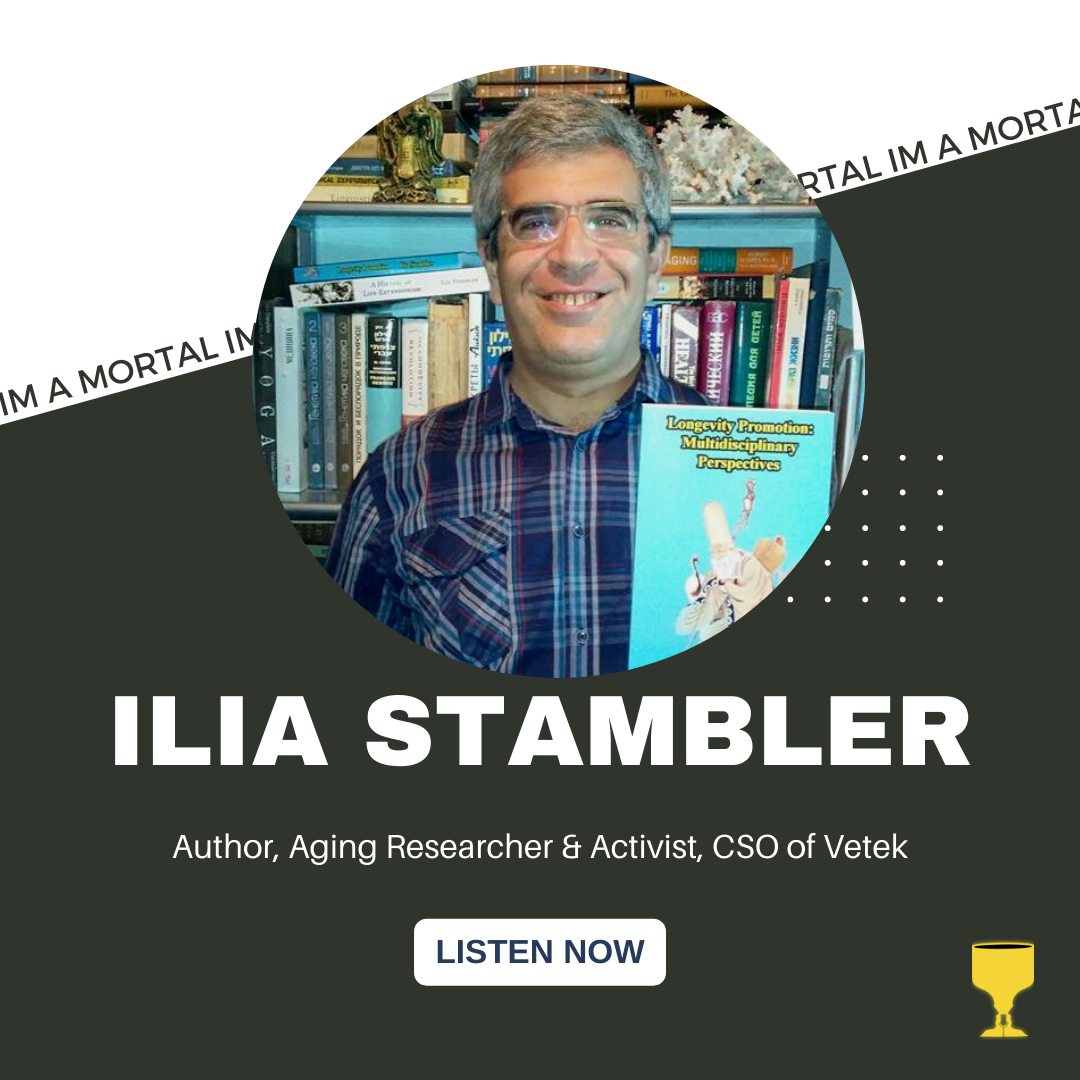Discover Im a Mortal
Im a Mortal

Im a Mortal
Author: Im a Mortal
Subscribed: 2Played: 32Subscribe
Share
© 2023 Im a Mortal
Description
Your Source for all Things Immortal.
Gathering perspectives related to aging, longevity, and immortality from Earth and beyond.
Join us as we see what various sciences, cultures, religions, and everything beyond views the idea of living longer and immortality.
Gathering perspectives related to aging, longevity, and immortality from Earth and beyond.
Join us as we see what various sciences, cultures, religions, and everything beyond views the idea of living longer and immortality.
31 Episodes
Reverse
Episode 30:
Jeff Greenberg is a Social Psychologist and a Regents Professor at the University of Arizona. He is one of the three developers of Terror Management Theory (TMT) alongside Sheldon Solomon and Tom Pyszczynski. In 2015, they authored The Worm at the Core: On the Role of Death in Life. Based on the works of Ernest Becker, TMT aims to explain why we feel death anxiety and how we manage this fear by creating meaning in our day-to-day lives. How do we attempt to deny death?
In this episode, we do a deep dive into TMT and how it has shaped the world around us. Why does history have so much conflict? Why do we defend our worldviews so strongly? How has technology impacted how we cope with death? How honest are we with ourselves about our own motivations? All this and more with Jeff Greenberg.
Episode 29:
When did you first care about aging and longevity? For Nina, her passion for the field started at the age of 12.
Join us for a conversation with the brilliant young mind of Nina Khera from when she was 16 (Recorded in 2021) and her journey in the field of Aging. In this episode we begin with a deep dive into Nina's Career by discussing what garnered her interest in the longevity and aging field, inspirations, being a prominent panel speaker and the generational differences in the focus on aging. We then dig into the age bias in aging, her perspective and experiences in the longevity field, the creation of Biotein and the motivation behind it, the overlap and prioritization of curing diseases, Artificial Intelligence and its applications, and predictions of the aging field by 2050. Finally, we wrap up by asking Nina how her peers and youth in the future can take control of their own aging and get involved.
Episode 28:
Brian Patrick Green is the Director of Technology Ethics at the Markkula Center for Applied Ethics. Brian's work on ethics is extensive, covering transhumanism, artificial intelligence, space exploration, corporate ethics, and religion. He has published several articles and resources on ethics and also authored several books including Space Ethics (2021) and Religious Transhumanism and Its Critics (2022).
In this episode, we ask Brian to share his journey into the world of ethics and the issues that face us today with the regulation of rapidly developing technologies like artificial intelligence. We also delve into the ethics of life extension therapies, questions of identity/what it means to be human, and Roman Catholic perspectives on additional life. We may have gone twice as long as the average episode but only for good reason!
Episode 27:
John Davis is a Professor of Philosophy at Cal State Fullerton and is the author of New Methuselahs: The Ethics of Life-Extension. With a book dedicated to answering all the questions about life extension, John Davis is your expert for philosophical and ethical discussion.
We might commonly ask ourselves are all lives equal but John Davis asks a very different question, are all deaths equal? And can life extension make them more or less equal? How will we feel this inequality on a day-to-day basis? We cover this and more including questions of identity, generational connection, and limitations on childbirth.
Episode 26:
Tina Woods describes herself as a Healthy Longevity Champion, and after our conversation with her, we cannot help but agree. Founding Collider Health is just the beginning of her experiences with an extensive history working with AI in Healthcare, being a part of multiple collectives and funds surrounding health aging, and focusing on innovation as a whole in the field.
Although recorded earlier, this episode carries just as much relevance in 2023 with us covering topics such as the Open Life Data Project, the NHS and its load on healthcare, food systems and the effects of common habits on our health, and many Worldly perspectives on Ai and public data collection.
Tune in for a great conversation and introspection alongside your favourite hosts!
Episode 25:
Sergey Young is the founder of Longevity Vision Fund (LVF), a venture capital fund that invests in technologies that will ultimately help people live longer and healthier. LVF has supported numerous companies including LyGenesis, Cambrian, Juvenescence, and Insilico Medicine. Sergey is also the author of "The Science and Technology of Growing Young" which covers the current longevity landscape and where we are heading in the future.
In this episode, Sergey discusses his process for choosing what technologies to invest in and shares his thoughts on what societal changes are needed for us to live healthy lives. Longevity doesn't start with a drug, it starts with ourselves and creating movements in our communities.
Episode 24:
Theodora Girgis is an Aerospace Engineering Student at the University of Toronto. As one might guess, Theodora is passionate about all things space with experience in astrophysics research at her university and an internship with the Canadian Space Agency. She is also one of the hosts of The Sound of Space, a podcast on space created by the University of Toronto Aerospace Team.
In this episode, Theodora discusses the limitations of space travel, the implications of extended life in space, how life extension might be perceived by peers in her program, whether radically extending lives conflicts with her faith, and much more.
Episode 23:
Jeremy Cohen, Co-Founder of TalkDeath and an Assistant Professor at McMaster in the department of Religious Studies focuses on new religious movements seeking radical longevity and immortality, alongside the historical and cultural framework of changing North American relationships to technology and death.
Jeremy describes death across the scopes of religion, life extension, and what exactly a good death is. The conversation dives deep into life extension and immortality in the realms of religion, potential changes to religions with the advent of extended life, transhumanism and our personal opinions on cryonics and much more!
Episode 22:
Judy Ford holds a Ph.D. in Genetics and Cell Biology and has been involved in health research for several decades with extensive work on the interplay between reproduction, genetics, and toxicology. Although retired, Judy now teaches about how lifestyle affects the aging process through her online courses and her book, Why We Age - Solving the Puzzle of Aging.
In terms of biology, Judy describes the contributions of diet and genetics to longevity, as well as the differences in extending life pre and post-menopause. She also veers into the hypothetical with discussions on economic productivity with age, overpopulation, and euthanasia. Finally, Judy also shares some ways to get involved in aging research such as citizen science projects!
Episode 21:
Aisha Musa holds a doctorate of Near Eastern Languages and Civilizations from Harvard University with a specialization in Arabic and Islamic Studies. In the context of life extension, she authored the chapter, A Thousand Years, Less Fifty: Toward a Quranic View of Extreme Longevity, in the book, Religion and the Implications of Radical Life Extension.
In this episode, Aisha discusses interpretations of extreme life extension in the Quran, the compatibility between free will and destined death, what Islam teaches about the afterlife, and what Muslims may think of undergoing life-extending therapies.
Episode 20:
David Wood is chair of London Futurists, author of Vital Foresight, cofounder of Symbian and has over 25 years of experience in the tech industry and as a head of research. His experience alongside his foundation in mathematics and philosophy at Cambridge University has led him to being the futurist he is today.
What is a futurist you might ask? Well in this episode David goes through a plethora of questions including plenty regarding what exactly a futurist is and how it is distinguished from transhumanism. David also describes problems with life extension, societal rejection, developments in technology and its co-occurrence in longevity as a field, humanity+ (Humanity Plus), and plenty more.
Episode 19:
Bryan Caplan is a Professor of Economics at George Mason University and the author of several books including Open Borders: The Science and Education of Immigration and The Case Against Education.
In this episode, Bryan has a myriad of questions thrown at him. Alongside explanations on how life extension will change education, industry, birth rate, immigration, and insurance, Bryan also describes the motivation behind work and why a biologically immortal generation won’t exactly create the scenario of a dystopian gerontocracy.
Episode 18:
Igor Grossmann is a professor of Psychology at University of Waterloo, specializing in wisdom and how societies change. He studied at the University of Freiburg and University of Michigan receiving his Ph.D. in Social Psychology, and his work uses innovative methods like big data analytics, psychophysiology, and much more.
In this episode, Igor provides us with insight as to how our brain experiences time dependent on our life length, what is individualism and collectivism and how it might affect our perceptions of aging technologies, and if more age truly correlates with more wisdom.
Episode 17:
Tarris Rosell is the Rosemary Flanigan Chair at the Center for Practical Bioethics and faculty at the Central Baptist Theological Seminary. With extensive experience providing bioethics education and consultation at Kansas City University and the University of Kansas Medical Center, Tarris provides some excellent perspectives on the things that must be considered when discussing immortality.
In this episode, Tarris explains how we ought to try and provide the same quality of healthcare to everyone, no matter their personal decisions in life. He also shares why the rejection of life extension is not the same as refusing life by comparing it to cases where people have opted to reject certain technologies and therapies. Finally, Tarris also gives some thought as to what Protestant Christians might think of life extension.
Episode 16:
Michael Trinh is an Immunology and Genome Biology student at the University of Toronto. He is also the Co-Founder of BioDojo, a community for students to learn about the frameworks for scientific innovation as well as providing them with a platform to learn about and engage with the biotech industry.
In this episode, Michael gives his thoughts on everything from immune memory and developments in synthetic biology to implications of genetic editing and problems of uploading a consciousness. Towards the end, Michael also gives some excellent advice on how undergraduate students can get involved in research themselves.
Episode 15:
Liz Parrish is the CEO of BioViva, a company whose goal is to genetically modify humans so that the body continuously stays in a state of homeostasis, as well as a graduate from Buckinghamshire University for her International MBA.
In this episode, she provides insight on the work BIoViva is doing, various gene therapies, her acts as a pioneer, statins, telomerase, the benefits and deficits of medical tourism, and present and future technologies that can help extend life.
Episode 14:
Oliver Zolman is a Medical Doctor graduating from King's College London, and founder of 20one Consulting Ltd. With a Medicine Degree under his belt, alongside his vast experience with solving-level problems in health care and aging, Oliver provides a never heard before perspective on Im a Mortal about the field of Aging and Longevity.
In this episode, he shares and describes his Longevity Levels framework and the three levels, how sleep quantity and quality differ and affect our aging, more reasons for you to drink wine, and the longevity field's role in medicine and academia; all from a doctor's perspective.
Episode 13:
Bhagwati Gupta is a Professor in Biology and the Associate Dean of Graduate Studies for the Faculty of Science at McMaster University. With many years of research into the gene networks that control cell fate using microscopic worm models, Bhagwati provides a biologist’s perspective on why humans are designed the way they are.
In this episode, he shares the reason why we didn’t evolve to live forever, why some organisms live for a matter of days while others are biologically immortal, and how much your genetics determine your lifespan.
Episode 12:
Jose Cordeiro was trained as an engineer at the Massachusetts Institute of Technology (MIT) but has been widely involved in the energy, education, and robotics fields as well, among several others. Needless to say, Jose is always eager to talk about new emerging technologies and is a huge advocate in the anti-aging space.
In this episode, Jose gives numerous examples of how quickly advances in technology and medicine have arisen and how the rate of change will only be faster in the future. Jose also shares with us why we should be just as excited as he is about the future and how we can all have super intelligence, super longevity, and super happiness.
Episode 11:
Ilia Stambler is an advocate for life extension, holds a PhD, is the CSO of Vetek, and Author of "A History of Life-eA History of Life-extensionism in the Twentieth Century" and "Longevity Promotion: Multidisciplinary Perspectives", and so much more.
In this episode, we ask him about how Life Extension has been perceived in the past, the policies, advocacy, growth, multidisciplinarity, and development of the field, as well as about his experience in Israel and their efforts.
Comments
 United States
United States

